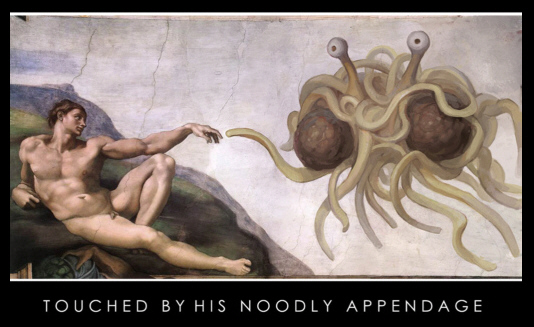Carry On, Mr. Bowditch, by Jean Latham, won the Newbery Medal in 1956, but since then it seems to have slipped into obscurity. An aunt gave it to me for my eleventh birthday, and while it didn’t seem terribly interesting based on the cover, I was fortunately at an age where I would read just about anything, so I lay down on my bed, set the book on my chest, and cracked it open.
A full explanation of the story wouldn’t have gotten me much more interested, either: a historical novel about a mathematician from the eighteenth century? Meh. But Latham does a fabulous job of endearing the reader to young Nat Bowditch, who was born near Boston just before the start of the Revolutionary War. His mother and grandmother die at the start of the story, and a sister and brother not long after–if there’s one thing this book teaches you, it’s how fragile life was before modern medicine–and Nat is left with his father and older sister. Nat demonstrates a knack for mathematics, to the point where he’s punished by a schoolteacher who doesn’t believe he’s actually solving arithmetic problems on his own.
Nat dreams of going to Harvard, but is forced to quit school to help his father with the bookkeeping at their cooperage. When the business is sold–“lock, stock, and bookkeeper,” as the new owner jokes, Nat becomes an indentured servant, meaning he won’t be free to go to Harvard (or anywhere else) for nine long years.
This is where the main theme of the book starts to show through: when life throws up obstacles, the only thing you can do is just find your way around them. A fellow bookkeeper complains that he and Nat are ‘becalmed,’ but Sam, an older captain, tells Nat that when the wind dies, a ship has to ‘sail by ash breeze:’
Nat asked, “How do you sail by ash breeze?”
Sam grinned. “When a ship is becalmed, the wind died down, she can’t move, sometimes the sailors break out their oars. They’ll row a boat ahead of the ship and tow her. Or they’ll carry out anchors and heave them over, and the crew will lean on the capstan bars and drag the ship up to where the anchors are heaved over. Oars are made of ash–white ash. So when you get ahead by your own get up and get, that’s when you sail by ash breeze.”
Nat takes Sam’s advice to heart and sets about learning Latin, French, and Portuguese with the help of people he meets around Boston. He gets access to a local library and teaches himself mathematics.
When he’s finally releases from his indentured servitude, he goes to sea as a “supercargo,” a term for anyone who isn’t able to directly help with the mechanics of sailing. He’s tasked with keeping the books for the ship’s trade, but he develops an interest in the mathematics of celestial navigation. Many sailors of the time prefer traditional dead-reckoning because they don’t understand or trust the newer mathematical techniques. Nat tries to reassure them that math can be trusted, but he has a hard time winning anyone over.
One night, while reviewing the primary navigation text of the day, The New Practical Navigator by John Moore of the English Royal Navy, Nat finds an error in one of its tables. He bursts into his captain’s stateroom:
Captain Prince jumped to his feet. “What’s happened?
“I found an error in one of Moore’s tables!”
Prince looked at him in utter disgust. “Is that what you came slamming in here about? An error in which table?”
Nat told him.
Prince gave a short laugh. “My dear Mr. Bowditch, Moore didn’t compute that table. Do you know who did? Nevil Maskelyne, the royal astronomer of England!”
“I can’t help who computed it!” Nat barked. “There’s an error!” He showed Prince his page of figures. “There! I checked it! See? Why didn’t Moore check those figures before he accepted them?”
Prince looked at the paper covered with Nat’s tiny figures. “All that, to find one error? And there are probably two hundred thousand figures in those tables. Maybe that’s why he didn’t check every figure, Mr. Bowditch.”
“But he should have! Mathematics is nothing if it isn’t accurate! Men’s lives depend on the accuracy of those tables! It’s, it’s, criminal to have a mistake in a book like this! Do you hear me! It’s criminal! Men’s lives depend on these figures!”
Nat invents a new way of calculating a ship’s position by sighting the moon and eventually decides to write his own navigation text, and spends years of his life making sure that it is accurate enough for sailors to rely on. He becomes a captain of his own ship, and demonstrates the usefulness of mathematical navigation by sailing to trading ports around the world.
This book was engrossing enough that I’m pretty sure I read it five or six times as a teenager. I suppose I knew that it was more-or-less historically accurate, but I didn’t realize at the time how important Nat Bowditch was to sailing and navigation. The book he published in 1802, The American Practical Navigator, is still carried on every commissioned US Navy vessel. When doing research on celestial navigation for a science-fiction novel, I read through online forums which referred to Bowditch’s book. I felt proud, as if I’d just heard about the triumphant success of an old grade-school friend. These sailors and navigators might know everything about Nathanial Bowditch’s navigation text, but they didn’t know Nat Bowditch like I did.
filed under newbery-gets-it-right










